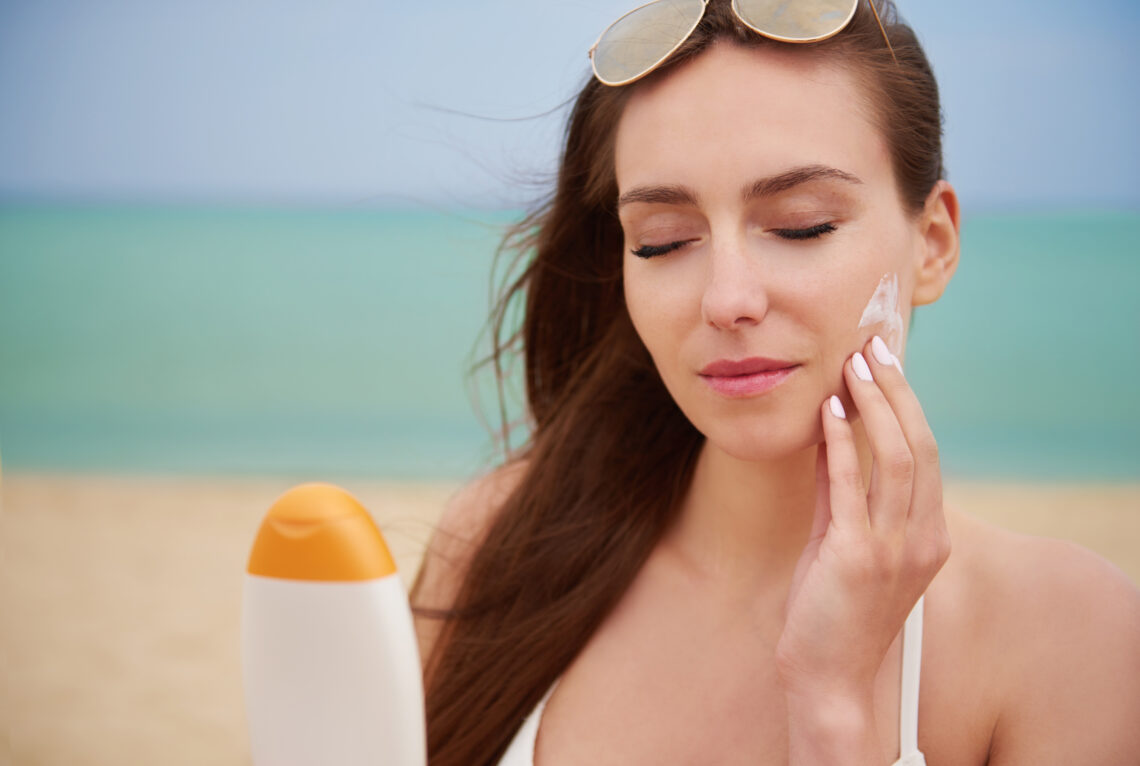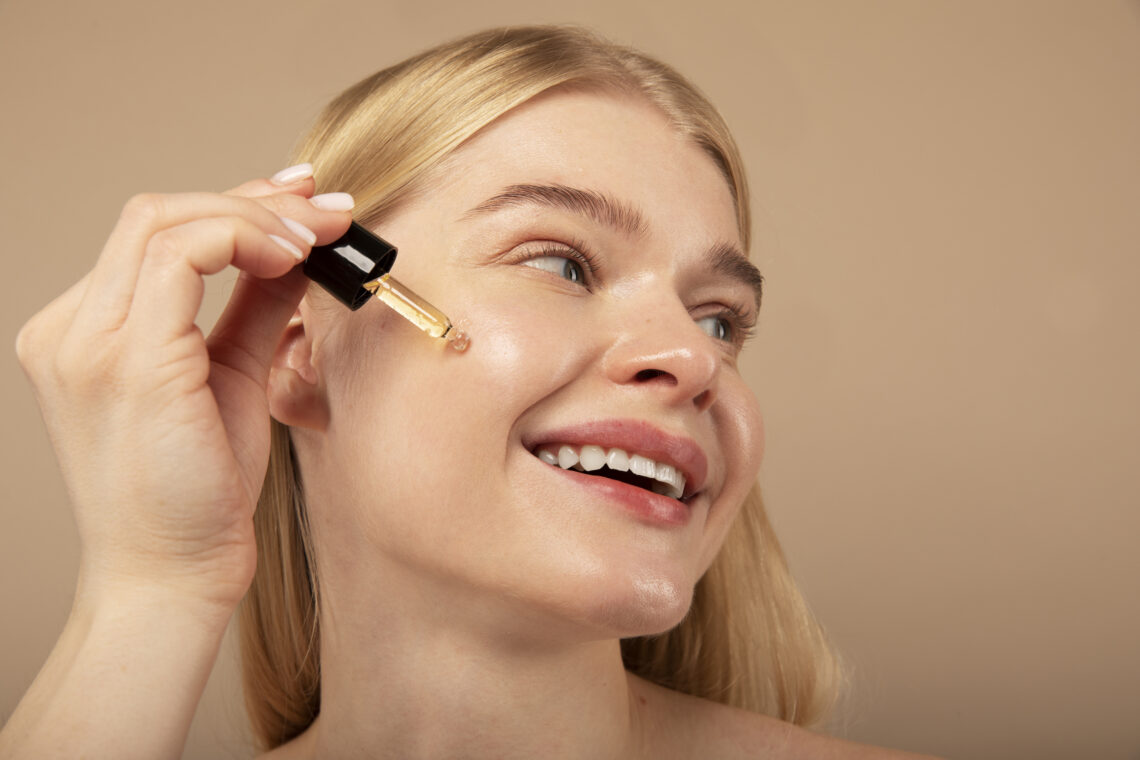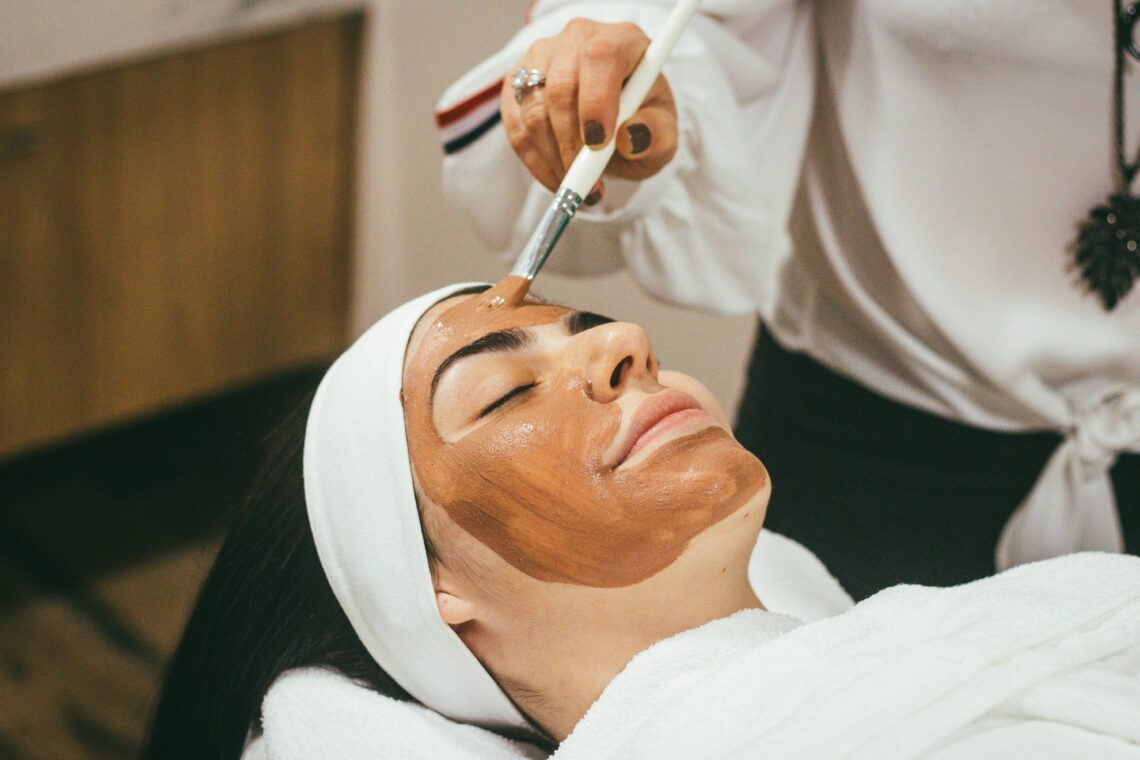Introduction
Imagine stepping out into the world with confidence, knowing that your sensitive and dry skin is shielded from UV rays. While radiating a natural glow that turns heads in this thrilling guide, we’ll navigate the treacherous terrain of sensitive and dry skin to uncover the holy grail of sunscreen. Are you ready for an adventure that guides you to the right sunscreen products? Well, buckle up and prepare to embark on a quest that will leave your skin hydrated, protected, and ready to take on the world!
Picture this: you’re basking in the glorious sunshine, feeling the warm rays on your face, when suddenly, your sensitive skin rebels, turning red and irritated faster than you can say “SPF.” Fear not, brave souls, because we’re here to rescue you from sunburn-induced misery. We understand the struggles of sensitive and dry skin, and we’re determined to help you find a sunscreen that’s as gentle as a summer breeze.

In this journey, we’ll unravel the mysteries of why choosing the right sunscreens for dry and sensitive skin are crucial. And fear not, for we have gathered the most valuable tips and tricks to ensure a seamless integration of sunscreen into your daily skincare routine with product recommendations.
Let’s focus on sensitive skin first!
The right sunscreen for sensitive skin:
To give the best protection without irritating the skin. Choosing the proper SPF for sensitive skin involves careful evaluation of formulations and practical advice. Here is a guide to assist you navigate the SPF world and maintain the health of your sensitive skin:
- Look for Mineral-Based Formulations: Opt for sunscreens that contain mineral filters like zinc oxide and titanium dioxide. These physical blockers are generally gentler on sensitive skin compared to chemical filters. As they sit on top of the skin and reflect UV rays away. Look for labels that say “mineral” or “physical” sunscreen to find suitable options.
- Go for Fragrance-Free and Hypoallergenic: Fragrances can be a common trigger for skin sensitivity, so choose sunscreens labelled as fragrance-free or hypoallergenic. These formulations are designed to minimize the risk of allergic reactions and irritation.
- Check for Non-Comedogenic Formulas: Non-comedogenic sunscreens won’t clog your pores or cause breakouts. This is especially important if you have sensitive skin that is prone to acne or blemishes. Non-comedogenic formulas allow your skin to breathe while providing sun protection.
- Opt for Broad Spectrum Protection: Ensure that the sunscreen you choose offers broad-spectrum protection, meaning it shields your skin from both UVA and UVB rays. UVA rays contribute to premature ageing, while UVB rays are responsible for sunburn. Broad-spectrum sunscreens provide comprehensive protection against both.
- Start with a Lower SPF and Gradually Increase: Higher SPF doesn’t always mean better for sensitive skin. In some cases, very high SPF may contain additional ingredients that could potentially cause irritation. Start with a lower SPF, such as SPF 30, and observe how your skin reacts. If it’s well-tolerated, you can gradually increase the SPF level.
- Patch Test Before Full Application: Before slathering sunscreen all over your face.
The right sunscreen for dry skin:
When selecting an SPF for dry skin, there are a few key considerations to keep in mind. To ensure the best protection and care for your skin, follow these tips:
- Moisturizing sunscreens: Choose hydrating formulas with ingredients like hyaluronic acid, glycerin, ceramides, and natural oils.
- Cream or lotion textures: Opt for richer textures that lock in moisture and protect against dryness.
- Avoid alcohol-based formulas: Check for alcohol-free options to prevent further dehydration.
- Added emollients: Look for sunscreens with shea butter, cocoa butter, or dimethicone for added nourishment.
- SPF with anti-ageing benefits: Choose sunscreens with antioxidants like vitamin C or green tea extract to protect against premature ageing.
- Moisturizer + SPF combo: Use a moisturizer with built-in SPF for simultaneous hydration and sun protection.
- Lip and eye protection: Apply lip balm with SPF and wear sunglasses or a hat to shield your lips and eyes.
As a result, why is choosing the right sunscreen for dry and sensitive skin crucial for you:
Here are the answers for you:
- Protection against UV Rays: Sunscreen shields the skin from harmful UV rays, reducing the risk of hyperpigmentation, wrinkles, texture changes, and skin cancer caused by UV radiation. Applying sunscreen limits the penetration of UV rays into the skin, preventing dryness and leathery texture associated with prolonged sun exposure.
- Decreased Risk of Skin Cancer: Regular use of sunscreen with an SPF of 15 or higher reduces the chances of skin cancer by approximately 40%. Opt for a sunscreen with SPF 30 or higher, reapplying every two hours to ensure sufficient protection.
- Prevention of Premature Aging: Daily sunscreen application with SPF 15 or higher is linked to a 24% decrease in skin ageing. Dry skin is prone to quick ageing due to sun-induced dehydration. Sunscreen acts as a barrier against UV radiation, preventing the formation of wrinkles, creases, and hyperpigmentation associated with premature ageing.
- Promotion of Even Skin Tone: Sun damage can lead to skin discolouration and hyperpigmentation. Regular sunscreen use helps maintain a more even skin tone by preventing the development of dark spots or persistent redness and inflammation.
Products recommendations:
More blogs about sunscreens can be found here!
References:
https://www.the-scientist.com/daily-news/could-a-dose-of-sunshine-make-you-smarter-64395
https://www.womenshealthmag.com/uk/beauty/skin/a43804734/best-sunscreen-sensitive-skin/
https://www.allure.com/story/best-sunscreen-for-dry-skin



